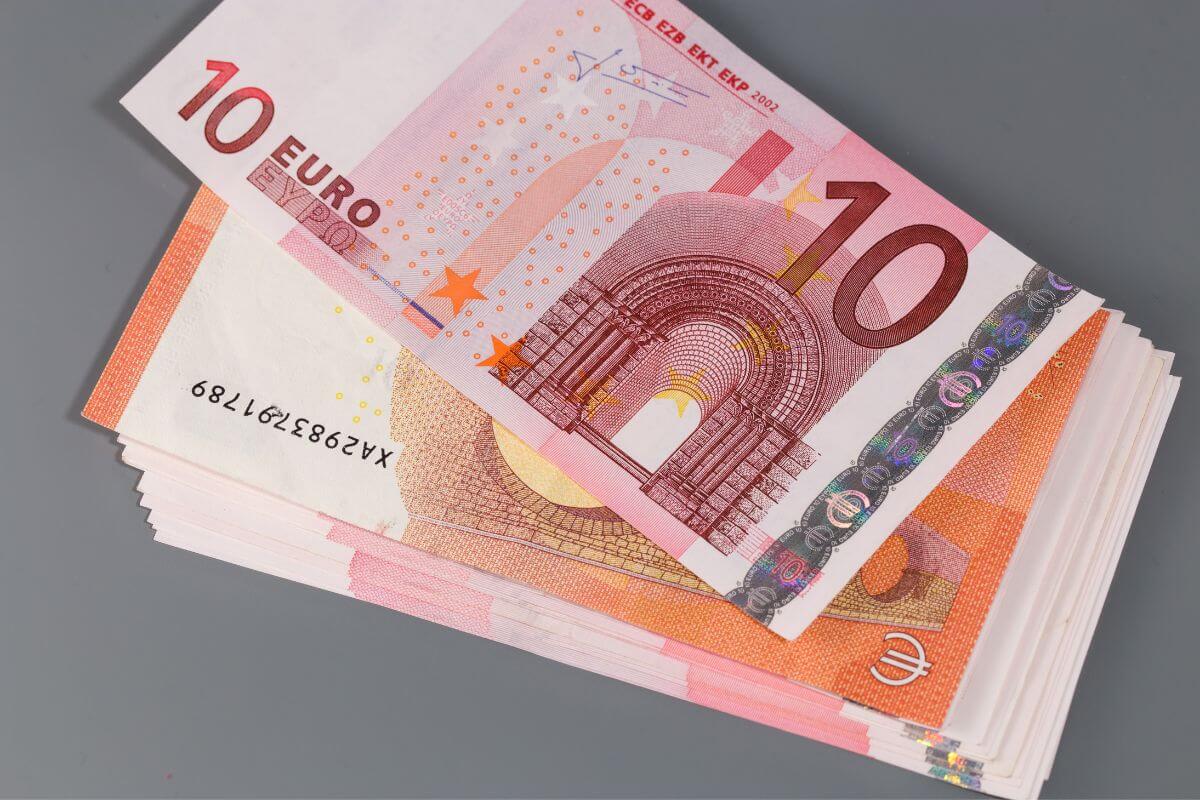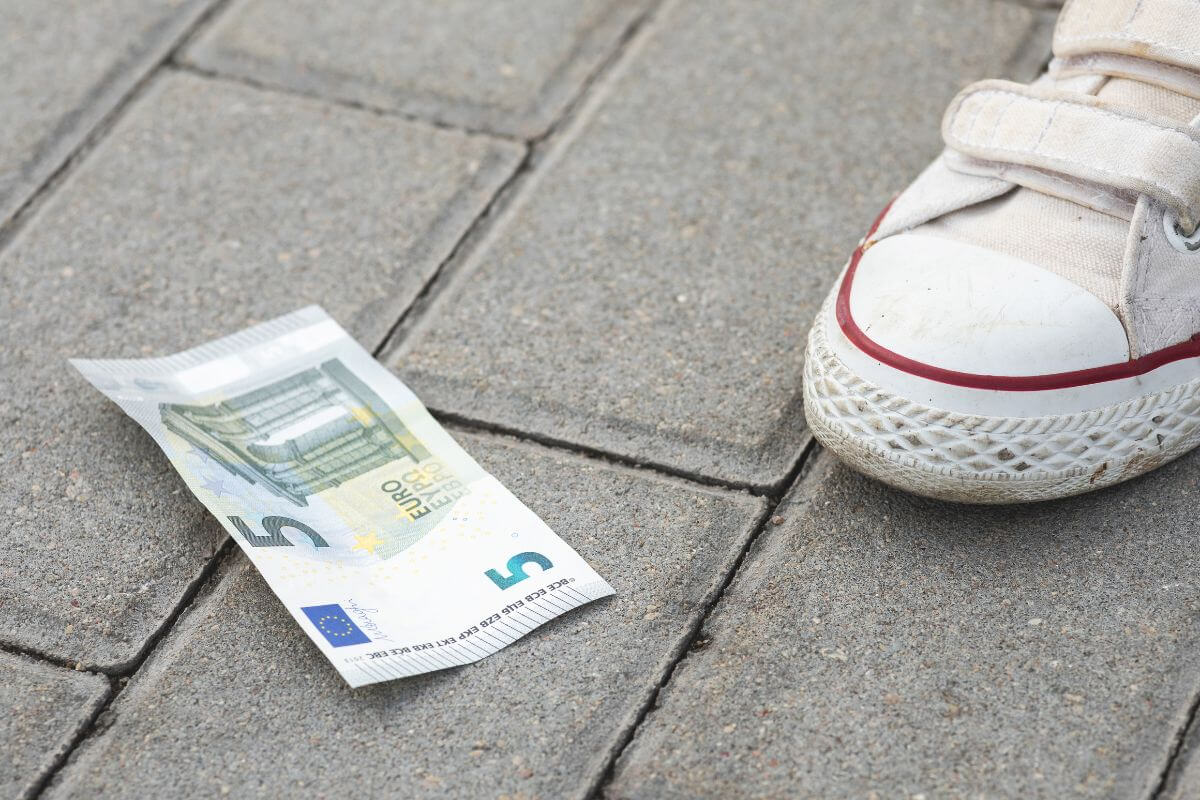Money is one of those everyday things that we are all constantly handling and talking about, so naturally, slang arises to grant us easier lexical tools with which to describe it.
In Irish slang, money is referred to in a number of different ways and shares a lot of slang with its British neighbors—but what is Irish slang for money?
One uniquely Irish term for money is spondulicks. It’s not used all that often, but it’s very unlikely to be heard outside of Ireland today. That said, they are most likely to refer to money as “quid”, like the British, or perhaps simply “cash” or specific slang for the denominations in question.
While you might expect more than a handful of slang terms would arise for something like money, the fact is that once you get one that’s effective and gains popularity, it tends to stick around for a while!
Of course, there are still more ways than one to refer to money in Irish slang, so let’s find out more.

What do the Irish call money in slang?
There are a couple of different ways that the Irish might refer to money, most of which are shared with their neighbors.
That said, let’s start with our proper Irish term, spoondoolicks.
No doubt this will sound strange to most English speakers and indeed many Irish people, too, but you will still hear this used in parts of Ireland. “That’s a lot of spoondoolicks,” for example.
However, this one, it must be said, is very uncommon.
It’s not anywhere near as widely used as it once was. In fact, it’s very unlikely that the younger generation of Irish people will understand what you mean when you use this word.
The more commonly used Irish slang phrases are things like “quid,” or simply “cash”.
Quid
“Quid” is one that is absolutely shared with Britain and is used more to refer to pounds.
However, even since the adoption of the euro in the Republic of Ireland, the term quid is still used.
Cash
Then, you’ll get the pretty universal slang term in the English-speaking world—cash.
This is generally meant to refer to physical money you have on hand, rather than money in the bank.
This one is ubiquitous across Ireland and will be understood wherever you are.
Finally, you’ve got the specific slang terms for smaller denominations.
Ten euros or a ten-pound note is a “tenner.”

A five-pound note is a “fiver.”

Where do all these terms come from?
Let’s find out.
Why do the Irish say spoondoolicks?
Unfortunately, though we can see that this term has been in used since at least the early 20th Century, we really have no sense at all of its origin.
Examples from at least 1923 show it in use to some degree in the writing of that period, and since none of the component parts of the word seem to relate to anything we know, it’s likely the term is a very old one.
It may in fact have its earliest origins in American slang, and it has passed through many linguistic hands over the years.
Wherever it arises, though, its origin is just a complete mystery.
Language is a difficult thing, and this is especially true of slang where its origins were in common use rather than in written form.
Maybe there’s someone out there who’s had the oral history of the word passed down to them, but until we find that person, we may never know!
Why do the Irish say quid?
Quid is both a singular and a plural in itself. So, you would say “a quid,” or “ten quid,” rather than “ten quids.”
Though we certainly have a better idea of the origin of this term, it’s still not precisely clear.
Again, this one is British in origin, but is now more or less ubiquitous in Ireland.
Our earliest evidence for the use of this term dates back to the 1680s, where it just meant a single sovereign.
Our best bet is that the word comes from the Latin quid pro quo, a phrase still in common use today which effectively means “this for that,” or literally, “what, something, anything.”
It means I will do something for you if you do something for me.
It likely spread to Ireland rather early on, and is universally understood today.
Why do the Irish say fiver?
The other slang terms that you’ll hear quite commonly are terms for specific notes.
Five pounds or five euros is a fiver. “Can I borrow a fiver?” for example.
This one is a bit more recent, appearing in the middle of the 19th Century.
This is when paper money was becoming more common and widespread, and so fiver always meant a five pound note, rather than just money totalling five pounds.
Why do the Irish say tenner?
The origin of the term tenner is, as you might expect, more or less the same.
Around the middle of the 19th Century, ten pound notes were becoming more common, although that was naturally quite a lot of money back then.
In any case, it was a fairly natural evolution of the language to incorporate these new bank notes into colloquial language.
So, while the most common ways to refer to money in Ireland are mostly going to be shared with British slang, there are a couple of less commonly used and more uniquely Irish terms.
For the most part, though, the most common slang terms you’re likely to hear are quid, cash or some slang term for the note itself.
References:
More in Irish Slang
- Irish Slang For Angry
- Irish Slang For Baby
- Irish Slang For Beer
- Irish Slang For Boy
- Irish Slang For Cool
- Irish Slang For Crazy
- Irish Slang For Drunk
- Irish Slang For Friend
- Irish Slang For Fun
- Irish Slang For Funny
- Irish Slang For Girl
- Irish Slang For Informant
- Irish Slang For Money
- Irish Slang For Mother
- Irish Slang For Potato
- Irish Slang For Toilet
- Irish Slang For Vomit
- Irish Slang For Whiskey
- Irish Slang For Yes

